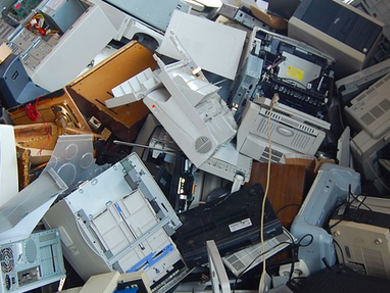Electronic waste (e-waste) is one of the fastest-growing waste streams worldwide. Xianlai Zeng and Jinhui Li, Tsinghua University, Beijing, China, and John A. Mathews, Macquarie University, Sydney, Australia, have analyzed data from eight recycling companies in China to calculate the cost for extracting and purifying copper and gold from e-waste (TV sets), a practice known as urban mining. Expenses included the costs for waste collection, labor, energy, material, transportation, the recyclers’ equipment and buildings. These expenses are offset by government subsidies and by revenue from selling recovered materials and components.
The researchers found that ingots of pure copper and gold could be recovered at costs that are comparable to those encountered in virgin mining of ores. Taking the offsets into account, it costs 13 times more to obtain these metals from ore than from urban mining. According to the researchers, their results indicate a trend and potential if applied across a broader range of e-waste sources and metals extracted, and if extended to other countries.
- Urban Mining of E-Waste is Becoming More Cost-Effective Than Virgin Mining,
Xianlai Zeng, John A. Mathews, Jinhui Li,
Environm. Sci. Technol. 2018.
https://doi.org/10.1021/acs.est.7b04909




